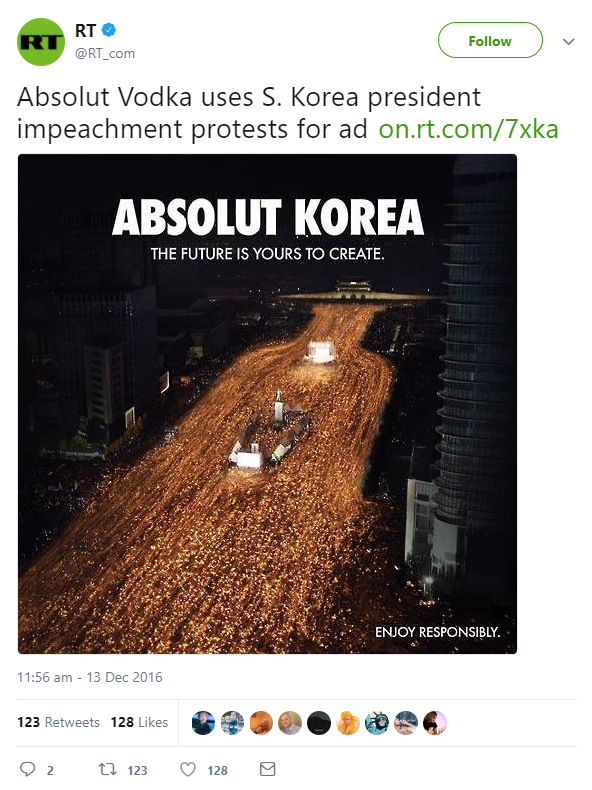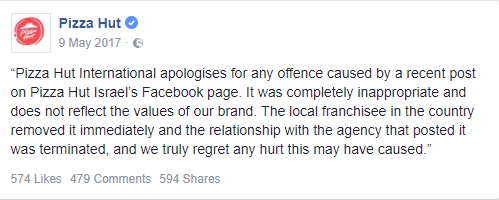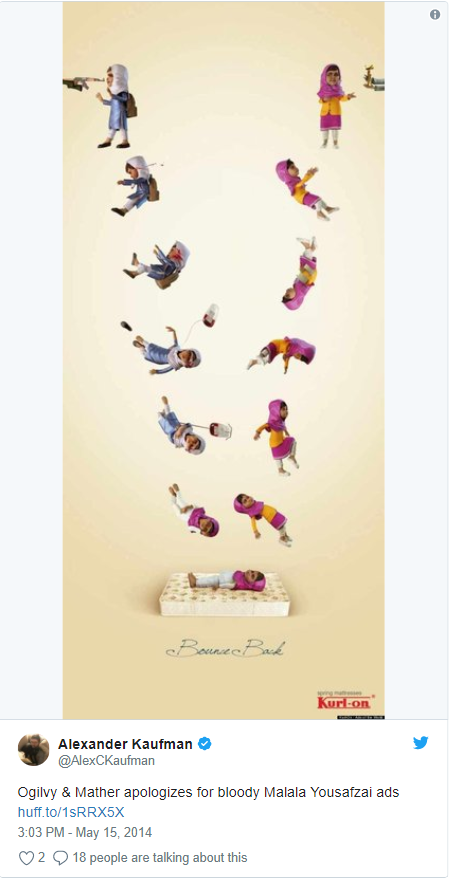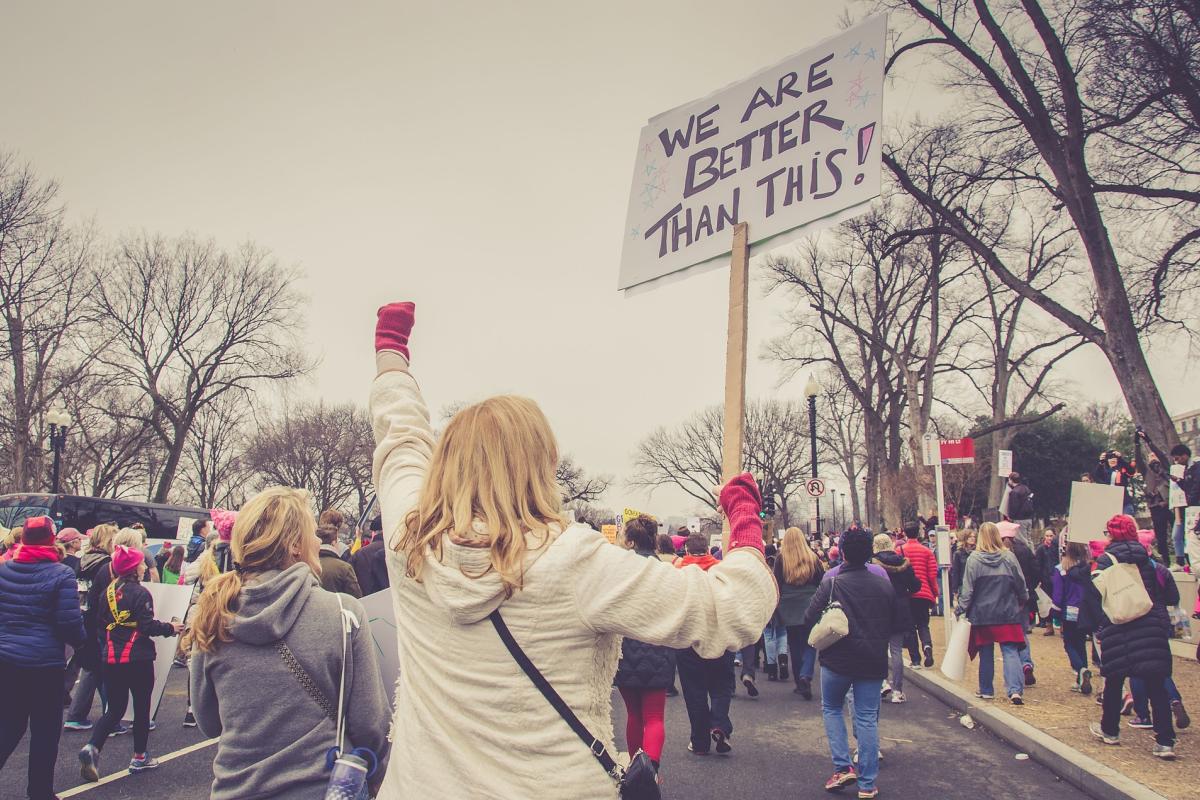No marcomms professional missed the now infamous ‘Live for now’ video released by Pepsi’s in April 2017.
But this is not the first time a brand has been caught up in a controversy.
With plenty of examples over the last few years alone, Creative Culture decided to take a look at how brands are increasingly getting more political in their communications – and the impact poorly thought out campaigns can have on a brand, their image and their reputation.
An ‘Absolut’e blunder

In late 2016, South Korea experienced political turmoil as then President Park Geun-hye was accused of corruption and cronyism. The political scandal engendered massive demonstrations across the country, eventually leading to Geun-hye being impeached by the National Assembly on December 9th.
A few days later, Absolut Vodka published a photomontage on Facebook. The image featured a crowd of demonstrators walking the streets, candles in hand. Not only did the spirits brand use actual footage of the political demonstration, but it edited the human tide into the shape of its iconic vodka bottle.
The photomontage resulted in an outcry on social media, with users condemning Absolut for profiting from the country’s political unrest. The brand eventually apologised to those who were outraged, but still pointed out that the post received significant positive reactions.
Pizza and hunger strikes don’t mix
In May 2017, Pizza Hut made waves among Palestinian consumers following an insensitive social media post. The pizza chain’s Israeli branch posted an image of political prisoner Marwan Barghouti allegedly breaking his hunger strike – a strike which he was leading – in his prison cell. They edited the image, adding a Pizza Hut box and a slice of pizza. The caption, written in Hebrew, said, "Barghouti, if you're going to break a strike, why not pizza?" Using the hashtag #Boycot_PizzaHut, Palestinians reacted by calling upon consumers to boycott the brand.
Though the post only appeared on the brand’s Israeli page, the scandal made international news – which is no surprise, considering the ongoing conflict between Israel and Palestine. The brand apologised and deleted the post, adding that they’d severed ties with the agency responsible.
Kurl-on might not ‘bounce back’
 In May 2014, advertising agency Oglivy & Mather found itself in hot water for trying to capitalise on the rising fame of Malala Yousafzai – the young Pakistani girl who, at the age of 14, was shot in the head by the Taliban. The shockingly graphic advert for Indian mattress company Kurl-on shows the young girl being shot and bloodied, her body tumbling on to the mattress below, from which she then springs back up.
In May 2014, advertising agency Oglivy & Mather found itself in hot water for trying to capitalise on the rising fame of Malala Yousafzai – the young Pakistani girl who, at the age of 14, was shot in the head by the Taliban. The shockingly graphic advert for Indian mattress company Kurl-on shows the young girl being shot and bloodied, her body tumbling on to the mattress below, from which she then springs back up.
The visual ends with Malala receiving Pakistan's National Youth Peace Prize.
The campaign, entitled ‘Bounce Back’ was actually part of a 3-part series, which also featured Steve Jobs and Mahatma Gandhi. While the aim of the overall campaign was to depict real-life examples of people who ‘bounced back’ from difficult situations, the imagery was simply too violent and insensitive for consumers.
Brands and advertisers should be careful when it comes to using controversies and sensitive or politically connoted subjects in their campaigns.
And while some brands most certainly get it wrong, others get it right – think back to the viral campaigns we wrote about in the lead up and immediately following President Trump’s election.
In the wake of the mass school shooting at Marjory Stoneman Douglas High School in Florida, celebrities and activists – including the survivors themselves – have been leading a campaign to change gun laws in the United States. In response to viral movements like #MarchForOurLives and #BoycottNRA, brands like Delta Air Lines have begun announcing they’re breaking ties with the National Rifle Association (NRA).
And for those who have yet to speak up? Social media users are singling out big-name brands like Apple TV, FedEx and Amazon, cancelling their memberships and encouraging others to do the same.
So while it’s easy for brands to go too far, sometimes the issue at hand is too important not to speak up.
By Creative Culture



